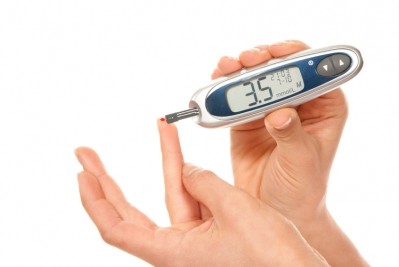Vitamin D deficiency linked to diabetes risk
The study, published in the American Journal of Epidemiology, investigated the relationship between levels of serum vitamin D – serum levels of 25-hydroxyvitamin D (25(OH)D) – and the incidence of type 1 diabetes in nearly 1000 members of the United States military.
Led byKassandra Munger from Harvard School of Public Health (HSPH), USA, the team found low levels of 25(OH)D may predispose healthy, young adults to the development of adult onset type 1 diabetes.
"It is surprising that a serious disease such as type 1 diabetes could perhaps be prevented by a simple and safe intervention," said Munger, who noted that the study results provide the strongest evidence to date suggest that vitamin D supplementation may be protective against type 1 diabetes.
Indeed the researchers add that the associations found suggest that even an adequate level of vitamin D may lead to an increased risk of diabetes:
"The risk of type 1 diabetes appears to be increased even at vitamin D levels that are commonly regarded as normal, suggesting that a substantial proportion of the population could benefit from increased vitamin D intake," explained Professor Alberto Ascherio from HSPH – senior author of the study.
The findings, if confirmed in future studies, could lead to a role for vitamin D supplementation in preventing this serious autoimmune disease in adults, the authors said.
Study details
Munger and her team conducted the prospective case-control study in U.S. military personnel on active duty, using blood samples from the Department of Defense Serum Repository, which contains more than 40 million samples collected from 8 million military personnel since the mid-1980s.
They identified 310 individuals diagnosed with type 1 diabetes between 1997 and 2009 and examined blood samples taken before onset of the disease. This information was then analysed against samples taken from 613 people in a control group who did not develop the disease.
Results of the analysis revealed that white, non-Hispanic, healthy young adults with higher serum levels (at levels over 75 nano-mol per litre) of vitamin D had about half the risk of developing type 1 diabetes than those with the lowest levels of vitamin D (under 75 nmol/L).
Although the researchers found no significant association among Hispanic or black people, the the team noted that this may be due to the small number of individuals in these study groups.
"Whereas it is premature to recommend universal use of vitamin D supplements for prevention of type 1 diabetes, the possibility that many cases could be prevented by supplementation with 1,000-4,000 IU/day, which is largely considered safe, is enticing," the authors said.
















